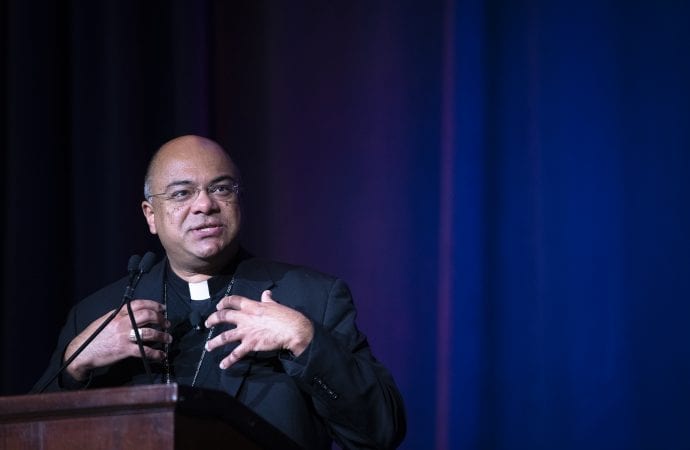Louisiana’s bipartisan push to abolish the death penalty received an extra boost this week from Bishop Shelton Fabre of the diocese of Houma-Thibodaux.
In an editorial in The Advocate, the state’s largest newspaper, the bishop called the practice “inconsistent with Louisiana’s values.”
“Ours is one of the most religious states in the country, with more than 70 percent of Louisianans identifying as highly devout,” he wrote. “Extinguishing the life of another person through the death penalty is simply out of step with our values, and our laws should be updated.”
In March, the state held a nearly 5-hour hearing on the death penalty to hear testimony, where representatives heard from both advocates and opponents of the practice.
Louisiana is one of 30 states in the country where the death penalty is still legal, however the state’s last execution was in 2010. In recent years, the state’s pharmaceutical company that manufactures the lethal drugs for the practice have put a moratorium to their supply to the state.
“For Catholics and many people of good will, the death penalty is inadmissible in today’s world because it offends the dignity of the human person without actually helping to promote the common good,” Fabre wrote. “Every faith tradition teaches that each of us is made in the image of God and that all human life has value. A person does not lose his humanity - even after committing a serious crime.”
The bishop said that the Christian season of Easter would be a particularly fitting time to abolish the practice.
“In this season of Easter, Christians are reminded of the gift of our redemption - a gift only available to us because of Jesus’ mercy,” he said. “For even on the cross, as he suffered and died, Jesus set an example for us by asking his Father to ‘forgive them, for they know not what they do.’ It is not our place, or the role of our government, to take away another person’s opportunity to seek redemption.”
Last year marked a historic low for death penalty sentences and executions in the United Sates, with fewer than 30 executions and 50 death sentences.
Of those executed, Fabre called into question both the circumstances and the conditions under which they were sentenced.
“Nationwide, more than 70 percent of the people executed in 2018 showed evidence of serious mental illness, brain damage, intellectual disabilities, or severe childhood abuse and trauma,” he said.
Fabre, who serves as head of the United States Conference of Catholic Bishops (USCCB), ad hoc committee against racism, called into question the racially biased nature of sentencings and executions within the state.
“Nearly 70 percent of the people on Louisiana’s death row are people of color, the highest percentage of any state with more than three people on death row,” he said. “In one study of Louisiana’s system, the chances of a death sentence were 97 percent higher for defendants whose victim was white than for defendants whose victim was black.”
“Louisianans should not stand for this prejudice,” he added.
The state’s Catholic governor, John Bel Edwards, is a widely known as one of the few national pro-life Democratic politicians. Edwards, who is seeking re-election this year, however, has not spoken about his personal views on the death penalty.
Fabre called on the governor to support the legislation, which is currently sponsored by both a Republican and a Democrat.
“It’s time for Louisiana to bring our public policies in line with our values, to embrace a culture of life, to choose mercy, and to end capital punishment once and for all,” he concluded.

